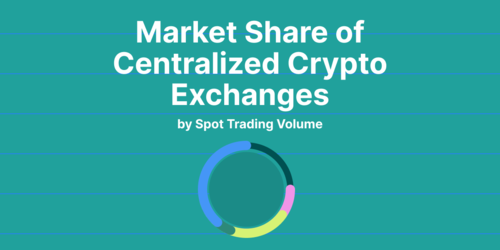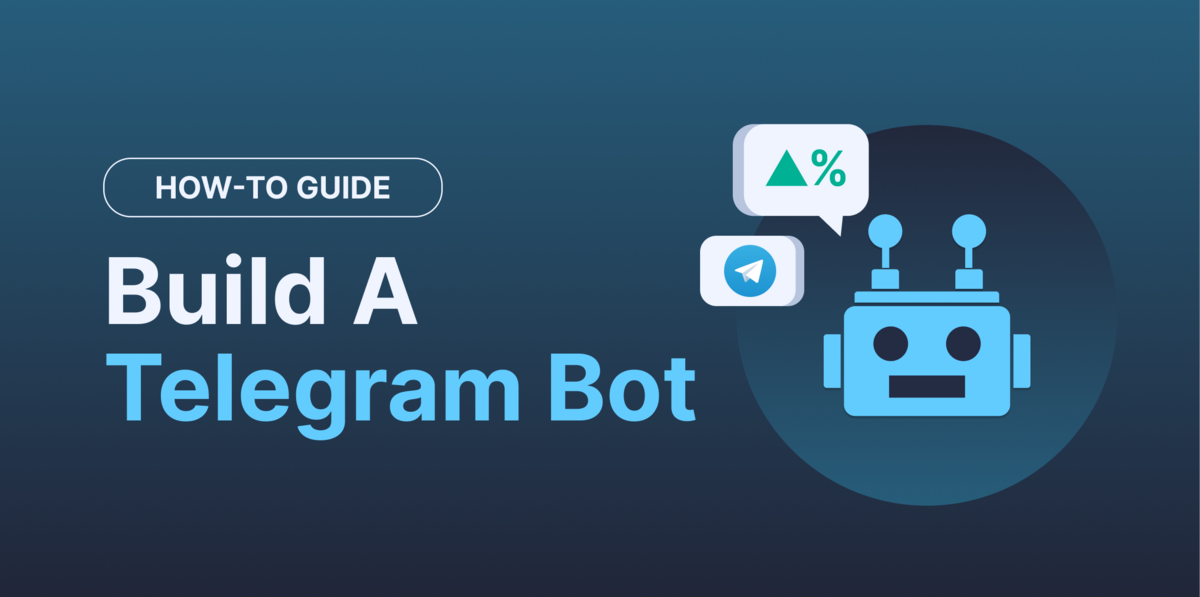Top Smart Contract Platform Coins by Market Cap
Smart contract platforms are usually blockchains that host smart contracts or decentralized applications. Users can interact with different smart contracts on these platforms to perform various actions such as lending and borrowing funds, staking their assets or minting NFTs.
Smart contracts are programs that are stored on the blockchain and are automatically executed when certain conditions are met. To interact with these smart contracts, transaction fees may need to be paid and the amount and asset required will vary based on the platform’s architecture. Usually, the smart contract platform’s native token is used to pay for transaction fees. Some popular examples of smart contract platforms include Ethereum, Solana and Polygon.
| # | Coin | Price | 1h | 24h | 7d | 30d | 24h Volume | Market Cap | FDV | Market Cap / FDV | Last 7 Days | ||
|---|---|---|---|---|---|---|---|---|---|---|---|---|---|
| 2 |

Ethereum
ETH
|
Buy
|
$3,119.18 | 0.1% | 0.6% | 1.8% | 12.7% | $11,736,465,887 | $380,889,216,969 | $380,889,216,969 | 1.0 |
|
|
| 4 |
BNB
BNB
|
Buy
|
$593.58 | 0.1% | 2.4% | 5.9% | 0.8% | $1,061,561,640 | $91,380,967,576 | $91,380,967,576 | 1.0 |
|
|
| 5 |

Solana
SOL
|
Buy
|
$136.14 | 0.0% | 5.2% | 5.5% | 27.1% | $2,949,665,507 | $60,963,011,570 | $78,360,296,626 | 0.78 |
|
|
| 11 |

Cardano
ADA
|
Buy
|
$0.4544 | 0.4% | 3.1% | 8.6% | 29.7% | $341,505,143 | $16,079,847,789 | $20,486,688,963 | 0.78 |
|
|
| 13 |

Avalanche
AVAX
|
Buy
|
$34.07 | 0.3% | 3.7% | 4.6% | 37.5% | $403,157,920 | $12,902,813,262 | $14,905,091,923 | 0.87 |
|
|
| 14 |

TRON
TRX
|
Buy
|
$0.1205 | 0.7% | 3.0% | 9.9% | 0.6% | $420,462,940 | $10,544,998,338 | $10,545,052,335 | 1.0 |
|
|
| 16 |

Bitcoin Cash
BCH
|
Buy
|
$471.06 | 0.4% | 1.1% | 1.7% | 14.2% | $292,125,798 | $9,292,908,032 | $9,907,253,635 | 0.94 |
|
|
| 17 |

Polkadot
DOT
|
Buy
|
$6.66 | 0.5% | 2.9% | 2.0% | 30.0% | $200,081,686 | $9,049,508,796 | $9,588,263,603 | 0.94 |
|
|
| 18 |

Chainlink
LINK
|
Buy
|
$14.12 | 0.6% | 4.8% | 1.1% | 27.5% | $376,665,783 | $8,303,429,945 | $14,143,127,833 | 0.59 |
|
|
| 19 |

NEAR Protocol
NEAR
|
Buy
|
$7.05 | 1.7% | 3.0% | 21.4% | 3.9% | $697,499,827 | $7,577,730,346 | $8,409,146,300 | 0.9 |
|
|
| 20 |

Polygon
MATIC
|
Buy
|
$0.6950 | 0.5% | 3.4% | 1.5% | 31.8% | $252,426,051 | $6,455,780,043 | $6,954,453,613 | 0.93 |
|
|
| 22 |

Internet Computer
ICP
|
Buy
|
$12.93 | 0.5% | 3.9% | 10.6% | 27.8% | $121,718,289 | $5,987,213,496 | $6,696,547,599 | 0.89 |
|
|
| 27 |

Ethereum Classic
ETC
|
Buy
|
$26.64 | 0.1% | 0.5% | 1.0% | 17.5% | $210,982,018 | $3,913,621,332 | $5,618,690,390 | 0.7 |
|
|
| 28 |

Hedera
HBAR
|
Buy
|
$0.1086 | 1.5% | 6.4% | 32.8% | 4.4% | $191,766,923 | $3,887,167,066 | $5,437,692,245 | 0.71 |
|
|
| 29 |

Aptos
APT
|
Buy
|
$8.78 | 0.8% | 1.3% | 9.9% | 51.3% | $131,377,598 | $3,752,468,188 | $9,614,328,661 | 0.39 |
|
|
| 30 |

Stacks
STX
|
Buy
|
$2.51 | 0.4% | 4.7% | 2.1% | 26.1% | $56,141,645 | $3,662,056,502 | $4,577,437,811 | 0.8 |
|
|
| 33 |

Stellar
XLM
|
Buy
|
$0.1124 | 0.3% | 0.6% | 0.9% | 17.7% | $65,550,459 | $3,254,479,558 | $5,622,899,818 | 0.58 |
|
|
| 39 |

Immutable
IMX
|
Buy
|
$2.05 | 0.3% | 0.0% | 0.2% | 31.7% | $50,460,279 | $2,986,521,851 | $4,100,069,452 | 0.73 |
|
|
| 43 |
VeChain
VET
|
$0.03854 | 0.3% | 1.7% | 6.9% | 13.2% | $58,229,018 | $2,805,362,327 | $3,317,345,775 | 0.85 |
|
||
| 52 |

Injective
INJ
|
Buy
|
$25.46 | 1.0% | 3.0% | 8.8% | 34.1% | $76,239,198 | $2,294,964,010 | $2,548,764,264 | 0.9 |
|
|
| 53 |

Theta Network
THETA
|
Buy
|
$2.27 | 0.3% | 5.3% | 8.5% | 23.8% | $48,155,430 | $2,270,898,972 | $2,270,898,972 | 1.0 |
|
|
| 58 |

Fantom
FTM
|
Buy
|
$0.6966 | 0.1% | 5.7% | 1.6% | 31.7% | $175,922,584 | $1,955,719,958 | $2,214,771,620 | 0.88 |
|
|
| 66 |

Algorand
ALGO
|
Buy
|
$0.1938 | 0.1% | 7.1% | 7.8% | 27.8% | $91,878,350 | $1,580,667,313 | $1,580,667,557 | 1.0 |
|
|
| 70 |

Sui
SUI
|
$1.17 | 0.1% | 1.3% | 13.6% | 42.3% | $172,117,455 | $1,517,811,964 | $11,712,402,523 | 0.13 |
|
||
| 75 |

Flow
FLOW
|
Buy
|
$0.8853 | 0.5% | 3.3% | 0.8% | 35.5% | $32,442,160 | $1,326,803,134 | $1,326,803,134 | 1.0 |
|
|
| 80 |

NEO
NEO
|
Buy
|
$17.77 | 0.0% | 0.7% | 3.3% | 12.2% | $80,379,507 | $1,254,653,656 | $1,778,893,600 | 0.71 |
|
|
| 82 |
Flare
FLR
|
Buy
|
$0.03008 | 0.2% | 1.1% | 11.4% | 13.7% | $11,431,746 | $1,164,251,132 | $3,067,585,547 | 0.38 |
|
|
| 84 |

MultiversX
EGLD
|
$41.57 | 0.2% | 2.3% | 0.2% | 32.2% | $22,686,499 | $1,118,385,137 | $1,118,599,605 | 1.0 |
|
||
| 97 |

Tezos
XTZ
|
Buy
|
$0.9946 | 0.6% | 1.6% | 1.2% | 28.3% | $35,033,530 | $975,402,364 | $995,867,245 | 0.98 |
|
|
| 99 |

EOS
EOS
|
Buy
|
$0.8239 | 0.3% | 1.0% | 3.9% | 22.2% | $148,767,500 | $945,902,604 | - |
|
||
| 108 |

Ronin
RON
|
$2.74 | 0.0% | 6.8% | 14.5% | 36.4% | $30,545,772 | $867,418,360 | $2,743,727,221 | 0.32 |
|
||
| 110 |

Gnosis
GNO
|
$325.03 | 0.2% | 0.9% | 6.5% | 11.9% | $3,795,543 | $842,120,307 | $975,583,740 | 0.86 |
|
||
| 118 |

IOTA
IOTA
|
Buy
|
$0.2291 | 0.6% | 1.1% | 0.2% | 34.7% | $18,890,183 | $741,410,745 | $1,056,040,814 | 0.7 |
|
|
| 126 |

Oasis Network
ROSE
|
$0.09988 | 0.6% | 0.2% | 0.4% | 30.2% | $19,539,691 | $672,842,027 | $999,795,592 | 0.67 |
|
||
| 128 |

AIOZ Network
AIOZ
|
$0.6116 | 1.8% | 8.3% | 1.4% | 34.8% | $5,528,802 | $663,681,152 | $666,640,682 | 1.0 |
|
||
| 135 |

Terra Luna Classic
LUNC
|
$0.0001044 | 0.4% | 4.9% | 2.0% | 32.7% | $39,614,933 | $606,628,064 | $709,800,624 | 0.85 |
|
||
| 150 |

Astar
ASTR
|
$0.09943 | 0.1% | 4.9% | 6.7% | 29.4% | $27,292,936 | $560,420,998 | $838,318,420 | 0.67 |
|
||
| 155 |

Radix
XRD
|
$0.05030 | 0.4% | 3.7% | 5.5% | 38.4% | $2,243,843 | $525,597,087 | $646,504,506 | 0.81 |
|
||
| 158 |
XDC Network
XDC
|
$0.03711 | 0.2% | 6.0% | 6.1% | 23.3% | $11,222,096 | $516,498,079 | $1,407,571,096 | 0.37 |
|
||
| 173 |

Zilliqa
ZIL
|
$0.02478 | 0.6% | 2.0% | 1.3% | 31.3% | $16,996,558 | $453,734,769 | $472,440,278 | 0.96 |
|
||
| 178 |

Holo
HOT
|
$0.002456 | 0.4% | 4.9% | 3.1% | 27.9% | $15,439,337 | $436,649,914 | $436,649,914 | 1.0 |
|
||
| 191 |

Qtum
QTUM
|
$3.91 | 0.4% | 0.6% | 3.5% | 15.6% | $22,305,318 | $411,516,807 | $422,069,465 | 0.97 |
|
||
| 203 |

Casper Network
CSPR
|
$0.03035 | 0.6% | 2.7% | 2.4% | 22.2% | $7,578,357 | $362,963,413 | $380,909,231 | 0.95 |
|
||
| 217 |

Ontology
ONT
|
$0.3688 | 0.9% | 2.9% | 3.7% | 3.0% | $27,679,739 | $331,958,791 | $368,762,032 | 0.9 |
|
||
| 230 |

Chia
XCH
|
$29.71 | 0.2% | 2.6% | 4.3% | 28.5% | $18,516,593 | $305,590,712 | $929,461,341 | 0.33 |
|
||
| 238 |
ZetaChain
ZETA
|
$1.14 | 0.3% | 4.0% | 8.9% | 47.5% | $12,388,981 | $270,053,118 | $2,398,251,553 | 0.11 |
|
||
| 240 |

Moonbeam
GLMR
|
$0.3045 | 0.2% | 4.7% | 3.6% | 40.6% | $6,293,169 | $261,730,000 | $340,171,040 | 0.77 |
|
||
| 249 |

Chromia
CHR
|
$0.3086 | 0.0% | 2.1% | 2.3% | 35.5% | $8,964,884 | $251,272,231 | $251,272,231 | 1.0 |
|
||
| 251 |

Harmony
ONE
|
$0.02018 | 0.1% | 2.9% | 2.8% | 36.7% | $7,263,612 | $248,516,774 | $265,695,621 | 0.94 |
|
||
| 258 |

Kadena
KDA
|
$0.8839 | 0.1% | 2.6% | 1.1% | 41.7% | $3,643,431 | $239,981,829 | $884,356,433 | 0.27 |
|
||
| 259 |

Aleph Zero
AZERO
|
$0.7702 | 0.0% | 0.5% | 4.0% | 25.9% | $1,956,882 | $239,862,279 | $277,115,157 | 0.87 |
|
||
| 260 |

Lisk
LSK
|
$1.65 | 1.2% | 10.5% | 6.4% | 17.0% | $11,721,081 | $239,432,705 | - |
|
|||
| 263 |

Waves
WAVES
|
$2.33 | 0.2% | 2.6% | 7.7% | 39.2% | $13,980,563 | $233,335,331 | $233,335,331 | 1.0 |
|
||
| 265 |
ICON
ICX
|
$0.2349 | 0.8% | 0.8% | 0.7% | 32.2% | $4,956,521 | $232,973,469 | $235,117,026 | 0.99 |
|
||
| 267 |
Vanar Chain
VANRY
|
$0.1635 | 0.6% | 3.2% | 2.6% | 38.8% | $17,235,269 | $230,149,403 | $230,149,403 | 1.0 |
|
||
| 291 |
FINSCHIA
FNSA
|
$26.73 | 0.2% | 1.2% | 0.3% | 24.7% | $551,463 | $208,084,461 | $208,084,461 | 1.0 |
|
||
| 299 |

DigiByte
DGB
|
$0.01168 | 0.5% | 0.6% | 9.1% | 17.0% | $7,555,391 | $198,018,932 | $244,988,323 | 0.81 |
|
||
| 308 |

COTI
COTI
|
$0.1176 | 0.0% | 2.4% | 0.1% | 39.0% | $7,798,830 | $184,962,624 | $235,225,653 | 0.79 |
|
||
| 322 |

Bitkub Coin
KUB
|
$1.94 | 1.2% | 8.0% | 3.1% | 27.9% | $1,481,176 | $172,497,297 | $213,558,838 | 0.81 |
|
||
| 325 |

Alephium
ALPH
|
$2.20 | 1.0% | 9.1% | 24.5% | 19.4% | $3,151,952 | $170,116,344 | $431,223,369 | 0.39 |
|
||
| 327 |

Syscoin
SYS
|
$0.2176 | 0.3% | 5.3% | 17.7% | 21.8% | $2,898,327 | $168,787,605 | $170,664,912 | 0.99 |
|
||
| 333 |

Stratis
STRAX
|
$0.08637 | 0.0% | 2.9% | 0.2% | 47.7% | $9,996,576 | $165,236,294 | - |
|
|||
| 345 |

Cartesi
CTSI
|
$0.1937 | 0.2% | 1.0% | 4.8% | 39.0% | $7,534,586 | $157,038,285 | $194,072,554 | 0.81 |
|
||
| 350 |

Aevo
AEVO
|
$1.41 | 0.4% | 3.8% | 8.7% | 60.7% | $44,176,525 | $155,314,823 | $1,411,952,934 | 0.11 |
|
||
| 352 |

Dusk
DUSK
|
$0.3327 | 0.1% | 1.6% | 12.9% | 50.9% | $15,320,849 | $153,418,728 | $166,387,721 | 0.92 |
|
||
| 356 |

Songbird
SGB
|
$0.01021 | 0.3% | 4.2% | 1.3% | 21.5% | $500,750 | $150,705,919 | $183,558,092 | 0.82 |
|
||
| 362 |

Humans.ai
HEART
|
$0.02657 | 1.1% | 3.8% | 9.9% | 28.4% | $463,532 | $148,951,187 | $208,323,339 | 0.72 |
|
||
| 363 |

Boba Network
BOBA
|
$0.3906 | 1.1% | 3.2% | 4.4% | 33.5% | $2,855,703 | $148,568,545 | $195,286,809 | 0.76 |
|
||
| 365 |

Telos
TLOS
|
$0.3545 | 0.4% | 6.1% | 7.3% | 4.3% | $10,240,413 | $147,568,795 | $148,923,187 | 0.99 |
|
||
| 389 |

Phala
PHA
|
$0.1870 | 0.3% | 4.9% | 4.2% | 36.0% | $9,935,193 | $133,953,931 | $187,184,253 | 0.72 |
|
||
| 401 |

Nym
NYM
|
$0.1787 | 0.1% | 0.4% | 1.1% | 33.5% | $1,259,873 | $128,035,723 | $178,522,209 | 0.72 |
|
||
| 412 |
Cudos
CUDOS
|
$0.01753 | 0.4% | 9.1% | 1.0% | 21.7% | $693,740 | $122,776,875 | $161,202,601 | 0.76 |
|
||
| 417 |

Oasys
OAS
|
$0.06417 | 1.9% | 1.7% | 0.1% | 32.8% | $733,503 | $118,954,308 | $640,196,357 | 0.19 |
|
||
| 431 |

Moonriver
MOVR
|
$12.62 | 0.0% | 2.6% | 3.1% | 41.6% | $5,362,268 | $112,794,912 | $142,269,458 | 0.79 |
|
||
| 435 |

LUKSO
LYX
|
$3.67 | 1.0% | 4.2% | 6.7% | 16.1% | $404,285 | $111,549,326 | $154,177,382 | 0.72 |
|
||
| 436 |

Secret
SCRT
|
$0.4107 | 0.2% | 2.8% | 6.4% | 44.2% | $2,974,566 | $111,442,199 | $120,516,128 | 0.92 |
|
||
| 441 |

Polygon Ecosystem Token
POL
|
$0.6945 | 0.5% | 3.6% | 1.1% | 31.4% | $707,217 | $109,634,881 | $7,097,169,416 | 0.02 |
|
||
| 445 |

QANplatform
QANX
|
$0.06354 | 0.2% | 2.7% | 10.0% | 33.0% | $475,212 | $108,035,865 | $133,427,470 | 0.81 |
|
||
| 454 |

Ardor
ARDR
|
$0.1056 | 0.1% | 0.9% | 1.4% | 21.7% | $8,015,163 | $105,438,349 | $105,438,349 | 1.0 |
|
||
| 459 |

Quasar
QSR
|
$0.1843 | 0.3% | 1.2% | 1.1% | 63.9% | $4,161.16 | $104,503,222 | $117,305,128 | 0.89 |
|
||
| 461 |

Ergo
ERG
|
$1.38 | 0.4% | 3.1% | 11.0% | 23.3% | $265,742 | $103,611,381 | $135,239,915 | 0.77 |
|
||
| 473 |

ChainGPT
CGPT
|
$0.2327 | 0.7% | 6.9% | 17.4% | 41.1% | $8,961,610 | $100,606,385 | $232,550,672 | 0.43 |
|
||
| 498 |

CANTO
CANTO
|
$0.1528 | 0.2% | 4.3% | 16.2% | 54.9% | $2,383,279 | $91,130,303 | $152,953,640 | 0.6 |
|
||
| 499 |

OMG Network
OMG
|
$0.6441 | 0.7% | 1.9% | 2.8% | 41.1% | $13,983,266 | $90,390,029 | $90,390,029 | 1.0 |
|
||
| 550 |

Agoric
BLD
|
$0.1137 | 0.3% | 0.6% | 2.8% | 20.1% | $280,407 | $74,544,433 | $121,842,109 | 0.61 |
|
||
| 560 |

Elastos
ELA
|
$3.24 | 0.5% | 5.4% | 1.0% | 4.1% | $345,187 | $71,586,988 | $82,981,584 | 0.86 |
|
||
| 561 |
NULS
NULS
|
$0.6587 | 0.5% | 5.1% | 4.4% | 25.9% | $7,406,018 | $71,435,203 | $83,966,832 | 0.85 |
|
||
| 563 |

Viction
VIC
|
$0.7237 | 0.1% | 2.2% | 5.3% | 27.7% | $4,197,441 | $71,058,950 | $72,420,727 | 0.98 |
|
||
| 566 |

Agoras: Currency of Tau
AGRS
|
$3.93 | 0.1% | 1.5% | 8.4% | 23.9% | $1,022,867 | $70,800,337 | $165,200,786 | 0.43 |
|
||
| 619 |

Aergo
AERGO
|
$0.1339 | 0.2% | 2.1% | 7.1% | 24.4% | $3,269,664 | $59,660,239 | $67,033,977 | 0.89 |
|
||
| 628 |

DeFiChain
DFI
|
$0.06685 | 0.1% | 0.4% | 1.9% | 14.8% | $3,186,865 | $58,549,928 | $80,392,823 | 0.73 |
|
||
| 648 |
Komodo
KMD
|
$0.3992 | 0.1% | 3.4% | 1.9% | 15.1% | $2,777,152 | $55,825,765 | $79,871,334 | 0.7 |
|
||
| 667 |

Wanchain
WAN
|
$0.2654 | 0.4% | 4.6% | 6.0% | 38.3% | $2,767,288 | $52,591,067 | $55,806,212 | 0.94 |
|
||
| 690 |

ThunderCore
TT
|
$0.004618 | 0.2% | 4.3% | 1.7% | 21.8% | $79,006.21 | $49,270,794 | $49,270,794 | 1.0 |
|
||
| 693 |

Meter Governance
MTRG
|
$1.37 | 1.4% | 3.5% | 7.6% | 34.4% | $234,334 | $49,192,940 | $63,728,993 | 0.77 |
|
||
| 704 |

Taraxa
TARA
|
$0.01151 | 1.8% | 4.9% | 13.7% | 10.1% | $583,228 | $47,119,858 | $120,611,096 | 0.39 |
|
||
| 705 |

Concordium
CCD
|
$0.005023 | 0.0% | 0.5% | 1.0% | 3.1% | $685,620 | $46,997,375 | $65,683,299 | 0.72 |
|
||
| 730 |

Archway
ARCH
|
$0.1407 | 0.3% | 10.8% | 6.8% | 21.1% | $398,319 | $44,308,847 | $152,774,235 | 0.29 |
|
||
| 762 |

Velas
VLX
|
$0.01604 | 0.2% | 0.4% | 12.4% | 10.1% | $1,016,782 | $41,503,818 | $41,503,818 | 1.0 |
|
||
| 826 |

Dero
DERO
|
$2.84 | 2.0% | 6.0% | 9.5% | 40.4% | $49,402.55 | $35,974,302 | $52,213,366 | 0.69 |
|
||
What are Smart Contract Platforms?
Smart contract platforms are blockchains that host smart contracts. Smart contracts are the backbone of decentralized applications (dApps), and smart contract platforms make it possible for developers to deploy apps ranging from decentralized exchanges that run on automated market makers (AMM), decentralized loan providers that enable users to lend and borrow cryptocurrencies, and even yield aggregators that automatically move assets to the best performing pools to maximize returns for their investors.
What are Smart Contracts?
Smart contracts are self-executing computer programs on a blockchain that activate specific outcomes when certain predetermined conditions are met. They are also immutable while providing transparency to all parties involved, as they are recorded on the blockchain.
To interact with smart contracts, users have to pay gas fees in the smart contract platform’s native coin. Gas measures the computational effort required to conduct transactions, the cost of which may vary based on the complexity of the smart contract.
Popular Smart Contract Platforms
Many Layer 1 blockchains support smart contracts, as smart contracts replace the role of the financial institution in decentralized finance. Popular L1 smart contract platforms include Ethereum, the largest smart contract platform and a pioneer of the space, and BNB Smart Chain (BSC), which is EVM-compatible, enabling users to use applications like Metamask to store their BEP-20 tokens.
Smart contract platforms also include Layer 2 (L2) scaling solutions, such as Arbitrum. These L2 solutions offer users faster and cheaper transactions by utilizing technology such as sidechains, bested blockchains, or optimistic and zero-knowledge rollups. These also depend on smart contracts, which validate the proof generated by the L2 protocol, validate it, resolve any disputes, and finalize transactions on the base blockchain.
Articles related to Smart Contract Platform






 Or check it out in the app stores
Or check it out in the app stores




